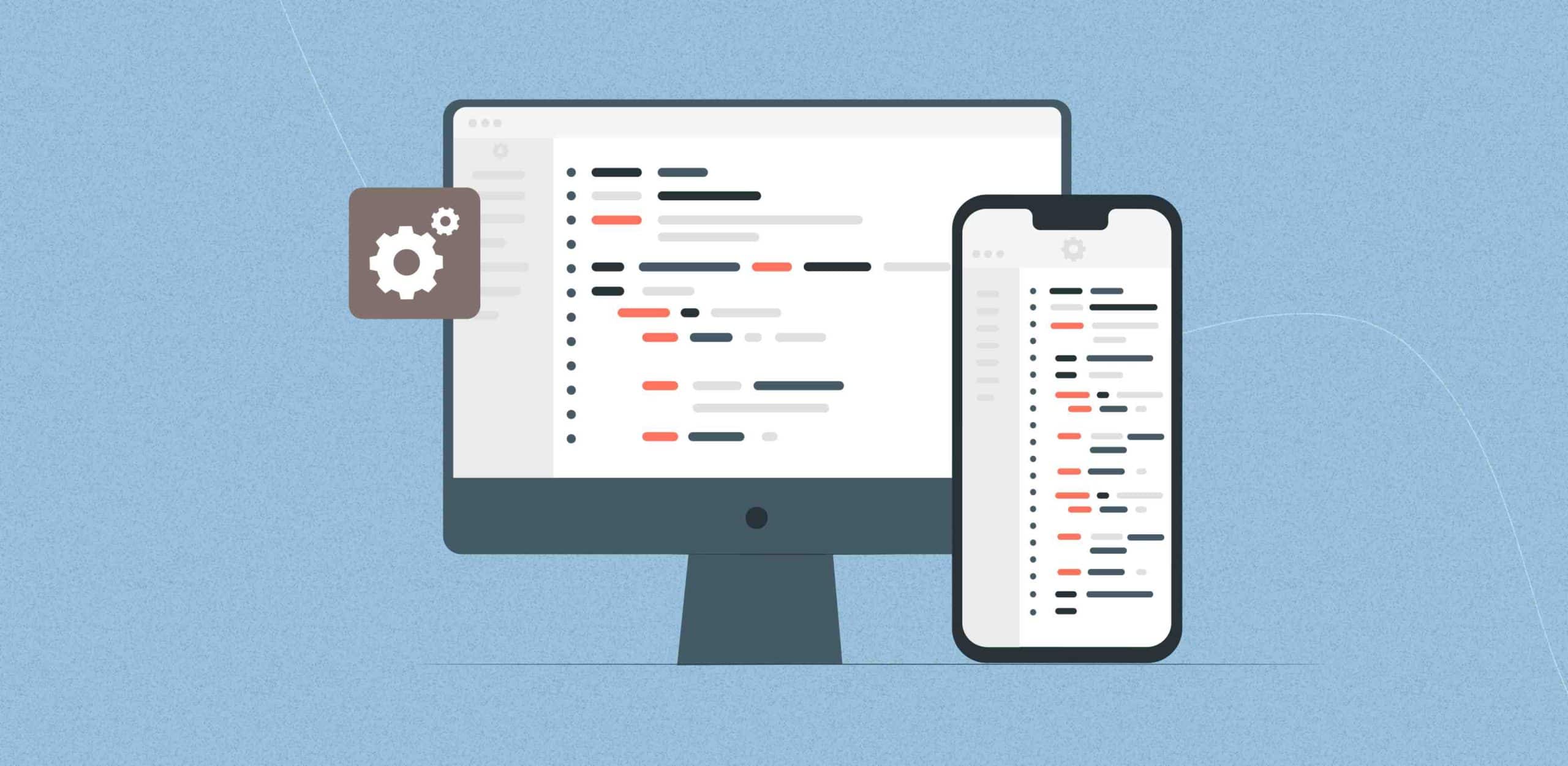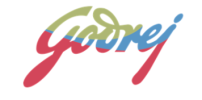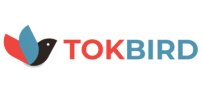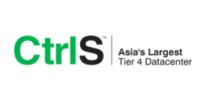eLearning app development has revolutionized the education sector, enabling seamless, interactive, and personalized learning experiences. Whether you’re a startup, an educational institution, or a corporate enterprise aiming to build a custom eLearning application, selecting the right eLearning app development company is a critical step toward ensuring success.
Partnering with the right eLearning app development services guarantees a user-friendly interface, advanced features, scalability, and security. However, with numerous development companies offering diverse solutions, finding the ideal partner can be challenging. This guide will help you identify key factors, evaluate potential providers, and choose a company that aligns with your business goals and technical requirements.
Understanding Your eLearning App Requirements
Before selecting an eLearning app development company, it’s essential to have a clear understanding of your project scope, goals, and technical needs. A well-defined strategy will not only streamline the development process but also help in identifying the right eLearning app development services that align with your business objectives. Below are key factors to consider:
Define Your Target Audience & Learning Objectives
The first step in eLearning app development is identifying who your learners are and what learning outcomes you aim to achieve. Defining these factors ensures that your application caters to user expectations and delivers an effective educational experience.
Key Questions to Answer:
- Who is your target audience? – Are you developing an eLearning platform for students, corporate employees, skill-based learners, educators, or general knowledge seekers? Understanding your user base helps in designing personalized learning experiences.
- What is the primary purpose of the eLearning application? – Different eLearning apps serve different objectives, such as:
- Corporate training platforms – Employee skill enhancement, compliance training, leadership development
- Academic learning solutions – K-12 education, higher education, test preparation
- Skill-based learning apps – Coding, language learning, professional certification courses
- MOOCs (Massive Open Online Courses) – Large-scale online education
- What type of content will be delivered? – eLearning applications support various content formats to enhance engagement and knowledge retention. Determine which formats are essential for your platform:
- Video lectures & live streaming – Essential for instructor-led training
- Gamified lessons & quizzes – Boost engagement and motivation
- Augmented Reality (AR) & Virtual Reality (VR) simulations – Ideal for interactive learning experiences
- AI-powered chatbots & personalized recommendations – Improve learner engagement through adaptive learning
- Discussion forums & collaborative tools – Foster peer-to-peer learning
Decide on Must-Have Features
A feature-rich eLearning application enhances engagement, usability, and accessibility. Below are some essential features to consider when developing your platform:
User-Friendly UI/UX
The app should have an intuitive interface, ensuring seamless navigation and a smooth learning experience for users across different age groups. Minimalistic design, easy-to-use dashboards, and accessibility compliance are essential.
Gamification & Interactive Learning
Incorporating badges, leaderboards, points, quizzes, and interactive challenges increases engagement and motivation among learners. Gamification keeps users committed to completing their courses.
AI-Driven Personalized Learning
Using Artificial Intelligence (AI), the app can analyze user behavior and provide personalized course recommendations, automated assessments, and customized study plans. AI-powered chatbots also enhance user support.
Live Classes & Video Conferencing
Live streaming and virtual classrooms allow instructors to conduct real-time lessons. Features such as screen sharing, breakout rooms, and whiteboards enhance the learning experience. Integration with Zoom, Google Meet, or custom-built WebRTC solutions is ideal.
Assessment & Certification Modules
A structured assessment system with MCQs, assignments, peer reviews, and skill-based tests helps in evaluating learner progress. Automated certification upon course completion adds credibility and boosts learner motivation.
Multi-Device Compatibility
A responsive eLearning app should work across mobile (iOS, Android), tablets, and web browsers. This ensures that users can access learning materials anytime, anywhere.
Other advanced features include:
- Push Notifications – Alerts for upcoming classes, deadlines, and promotions
- Offline Learning Mode – Downloadable content for studying without an internet connection
- Cloud-Based Learning Management System (LMS) – Secure data storage and access for users
Choose the Right Technology Stack
A well-chosen technology stack ensures high performance, scalability, and security for your eLearning application. Below are the key technologies used in education app development:
Frontend Development (User Interface & Experience)
React Native – Ideal for cross-platform development (iOS & Android)
Flutter – Offers a smooth, fast, and highly customizable UI
Vue.js / React.js – Suitable for web-based eLearning platforms
Backend Development (Server-Side Processing & Data Management)
Node.js – Fast and scalable, great for real-time updates
Django (Python) – Secure and efficient for complex applications
FastAPI (Python) – High-performance backend for AI-driven learning apps
Database Management
PostgreSQL – A reliable open-source relational database
MongoDB – Ideal for handling unstructured learning data, such as videos and course materials
Cloud Storage & Hosting
AWS (Amazon Web Services) – Scalable cloud hosting for large applications
Google Cloud – AI/ML integration and seamless storage solutions
Additional Integrations
LMS Integration – Moodle, Blackboard, or custom LMS
Payment Gateways – Stripe, PayPal, Razorpay for in-app purchases
Video Streaming – WebRTC, Agora, or Twilio for live sessions
Why Choosing the Right Tech Stack Matters?
- Ensures smooth app performance & scalability
- Enhances security & data privacy (crucial for educational data)
- Supports future updates & feature expansions
- Provides better user experience across devices
Clearly defining your eLearning app development requirements and selecting the right technology stack will help you shortlist the best eLearning app development services for your project.
Factors to Consider while Selecting an eLearning App Development Company
Choosing the right eLearning app development company is a critical step in building a robust and engaging eLearning application. With countless service providers available, evaluating multiple aspects can help ensure that you partner with the best fit for your business needs. Below are the key factors to consider when selecting an eLearning app development company:
Experience & Portfolio
Experience plays a crucial role in determining the quality and reliability of an eLearning app development company. A company with extensive experience in education app development will be well-versed in industry-specific challenges and best practices.
What to Look For:
- Portfolio & Case Studies – Examine their past projects and check if they have built eLearning applications similar to your requirements.
- Client Testimonials & Reviews – Look at reviews on platforms like Clutch, GoodFirms, and Google Reviews to assess customer satisfaction.
- Industry-Specific Expertise – Ensure they have worked with educational institutions, edtech startups, or corporate training providers.
Why It Matters:
A company with a strong background in eLearning app development will be able to offer valuable insights, quicker problem-solving, and innovative features based on previous experiences.
Technical Expertise & Innovation
Technology is the backbone of any eLearning application. To build a feature-rich, future-proof platform, your development partner should have expertise in modern eLearning technologies and emerging innovations.
Key Technologies to Look For:
- Artificial Intelligence (AI) & Machine Learning (ML) – For personalized learning experiences, intelligent content recommendations, and AI-powered chatbots.
- Augmented Reality (AR) & Virtual Reality (VR) – For immersive learning experiences in subjects like medical training, engineering, and simulations.
- Cloud-Based Learning Solutions – For scalability, flexibility, and accessibility across multiple devices.
- Blockchain Technology – For secure credentialing, digital certificates, and transparent student records.
Why It Matters:
A tech-savvy eLearning app development company can enhance user engagement with advanced technologies while ensuring that your app remains scalable and adaptable to future trends.
UI/UX Design Capabilities
A well-designed eLearning application should provide an intuitive and engaging user experience. The right eLearning app development services should prioritize UI/UX design to ensure easy navigation and accessibility for all learners.
Key UI/UX Factors:
- User-Centered Design – Intuitive interfaces that simplify navigation for learners of all ages.
- Mobile Responsiveness – Seamless experience across smartphones, tablets, and desktops.
- Accessibility Compliance – WCAG (Web Content Accessibility Guidelines) for visually impaired or differently-abled users.
- Interactive & Engaging Elements – Gamification, animations, and micro-interactions to enhance learning retention.
Why It Matters:
Poor UI/UX design can lead to low engagement, higher dropout rates, and user frustration. Choosing a company that excels in UI/UX for eLearning applications ensures better user satisfaction and long-term success.
Customization & Scalability
Every eLearning platform has unique requirements based on the target audience, learning model, and business goals. A good eLearning app development company should offer flexible and customizable solutions that can grow with your business.
Key Considerations:
- Customization – Ability to tailor content, dashboards, themes, and functionalities to match your branding and requirements.
- Scalability – Infrastructure that supports growing users, courses, and features without compromising performance.
- Multi-Tenancy Support – Ideal for enterprise training platforms or multi-institution learning systems.
Why It Matters:
A scalable and customizable eLearning application ensures that your platform can adapt to new user demands, course updates, and business expansions without requiring a complete redevelopment.
Integration with Third-Party Tools
Modern eLearning applications often require integration with external tools to enhance functionality and improve user experience.
Essential Integrations:
- Learning Management System (LMS) – Seamless integration with LMS platforms like Moodle, Blackboard, or custom-built systems.
- Video Conferencing Tools – Zoom, WebRTC, Microsoft Teams for live online classes.
- AI Analytics & Reporting – Data-driven insights on learner performance, engagement levels, and course effectiveness.
- Payment Gateways – Secure transactions through PayPal, Stripe, Razorpay, etc., for monetized courses.
Why It Matters:
A well-integrated eLearning application streamlines learning experiences, improves engagement, and simplifies administrative tasks for educators and trainers.
Security & Compliance
Security is paramount when handling sensitive student data, corporate training materials, and financial transactions. A professional eLearning app development company should follow strict security protocols and industry compliance standards.
Key Security & Compliance Measures:
- Data Encryption – Secure storage and transmission of user data.
- GDPR Compliance – Ensuring data privacy and protection for European users.
- FERPA Compliance – Protecting student records for educational institutions.
- HIPAA Compliance – Required for healthcare-related eLearning applications.
- Role-Based Access Control – Secure authentication and restricted access to sensitive information.
Why It Matters:
Non-compliance with security standards can result in data breaches, legal issues, and loss of user trust. Ensuring that your eLearning application meets these requirements protects both learners and administrators.
Post-Launch Support & Maintenance
Developing an eLearning application is just the beginning. A reliable eLearning app development company should offer continuous support, feature updates, and technical maintenance to keep your platform running smoothly.
Post-Launch Services to Look For:
- Bug Fixes & Performance Optimization – Ensuring smooth functionality without crashes or slowdowns.
- Feature Enhancements – Adding new tools, modules, and integrations based on user feedback.
- Security Updates – Regular patches to prevent cyber threats and vulnerabilities.
- Technical Assistance – 24/7 customer support and troubleshooting services.
Why It Matters:
A long-term maintenance plan ensures seamless learning experiences and helps your platform stay updated with industry trends and technological advancements.
Get to know the top features to look for in Custom E-learning App Development Services.
Get expert eLearning app development services tailored to your needs. Let's discuss your project now!
Top Questions to Ask Before Hiring an eLearning App Development Company
Choosing the right eLearning app development company is a critical decision that impacts the success of your digital learning platform. To ensure you’re partnering with the best provider, it’s essential to ask key questions that reveal their expertise, technical capabilities, security measures, and support services. Below are the top questions you should ask before making your final decision:
What Experience Do You Have in eLearning App Development?
Before finalizing a development partner, assess their experience in eLearning app development by reviewing:
- Portfolio & Case Studies – Examine past projects to see if they have worked on similar eLearning applications.
- Industry Expertise – Do they specialize in education technology (EdTech), corporate training solutions, or K-12 learning platforms?
- Client Testimonials & Reviews – Check platforms like Clutch, GoodFirms, and Google Reviews for feedback on their work.
- Success Stories – Look for measurable results, such as increased learner engagement or improved platform scalability.
A company with a strong background in eLearning app development services will understand industry-specific challenges and offer innovative solutions tailored to your needs.
What Technologies Do You Use for eLearning App Development?
The choice of technology stack plays a crucial role in the performance, scalability, and security of an eLearning application. Ask the company about:
- Frontend Development: Do they use React Native, Flutter, or Swift for mobile apps?
- Backend Development: Are they experienced in Node.js, Django, FastAPI, or other frameworks?
- Database Management: Can they implement robust database solutions like PostgreSQL, MongoDB, Firebase?
- Cloud & Scalability: Do they provide cloud-based solutions using AWS, Google Cloud, or Azure?
- AI & ML Integration: Are they capable of implementing AI-driven adaptive learning, chatbots, or recommendation engines?
A technologically proficient eLearning app development company will ensure your app is built using cutting-edge, future-proof technologies.
- How Do You Ensure Data Security & Compliance?
- Data Encryption – Do they use end-to-end encryption (AES-256) for secure data transmission?
- Authentication & Access Control – Do they implement multi-factor authentication (MFA) andData security is a major concern in education app development, especially when dealing with sensitive student and corporate training data. Ask about: role-based access control (RBAC)?
- Compliance with Industry Standards:
GDPR (General Data Protection Regulation) – For apps used in the EU.
FERPA (Family Educational Rights and Privacy Act) – For student data protection in the US.
HIPAA (Health Insurance Portability and Accountability Act) – If dealing with healthcare-related training.
Regular Security Audits – Do they conduct penetration testing and vulnerability assessments?
Choosing a company that prioritizes security ensures your eLearning application remains safe, compliant, and protected from cyber threats.
What Is Your Development Process?
A well-defined development process leads to a smooth, transparent, and efficient project execution. Ask the company about:
- Project Management Methodology: Do they follow Agile, Scrum, or Waterfall models?
- Development Phases: How do they structure the project lifecycle—planning, design, development, testing, deployment, and maintenance?
- Collaboration & Communication: What tools do they use for project tracking and communication (JIRA, Trello, Slack, Asana)?
- Testing & Quality Assurance: Do they conduct automated testing, usability testing, and bug fixes before launch?
A structured agile development process ensures your project stays on track, allowing for iterative improvements and faster time-to-market.
Do You Provide Post-Launch Support & Updates?
An eLearning application requires ongoing updates, maintenance, and technical support post-launch. Ask about:
- Bug Fixes & Performance Optimization – Will they provide prompt troubleshooting for issues?
- Feature Enhancements & Upgrades – Do they offer continuous improvements based on user feedback?
- Server & Database Management – Do they monitor app performance and scalability over time?
- SLA (Service Level Agreement) – What are the response times and resolution times for technical issues?
A reputable eLearning app development company will offer long-term support packages to ensure the app remains functional, secure, and updated.
Can You Provide a Cost Estimate & Timeline?
Understanding the cost structure and timeline is crucial to planning your project effectively. Key points to discuss:
- Project Scope & Budget – Can they provide a detailed breakdown of development costs?
- Pricing Model:
Fixed Price – Best for projects with clear requirements.
Hourly Rate – Suitable for evolving projects with ongoing changes.
Dedicated Team – Ideal for enterprises needing full-time developers.
- Project Timeline:
What is the estimated time for MVP (Minimum Viable Product) development?
How long will it take for full-scale deployment?
What are the milestones and deadlines?
Conclusion
Choosing the right eLearning app development company is a crucial step in building a successful eLearning application. By considering factors like experience, technology stack, customization, and post-launch support, you can ensure your project is in capable hands.
At Enfin, we specialize in providing custom eLearning app development services tailored to your business needs. Whether you need an LMS, mobile learning app, or AI-driven education platform, our expert team is here to help.
Let’s transform your business for a change that matters.
F. A. Q.
Do you have additional questions?
How do I choose a good app development company?
To choose the right eLearning app development company, consider the following factors:
- Experience in education app development
- Portfolio and case studies of previous eLearning applications
- Technical expertise in mobile and web technologies
- Compliance with security standards (GDPR, FERPA, HIPAA)
- Transparent pricing and structured development process
- Client reviews and ratings on platforms like Clutch and GoodFirms
Evaluating these aspects ensures you select a reliable partner for your eLearning app development project.
How to find the best outsourcing company for mobile elearning app development?
To find the best outsourcing company for eLearning app development, follow these steps:
- Research top app development companies on Clutch, GoodFirms, and LinkedIn.
- Shortlist companies with expertise in eLearning application development.
- Check their technology stack and development approach.
- Request a portfolio and client references.
- Conduct a pilot project or MVP before committing to a full-scale partnership.
Outsourcing to a skilled eLearning app development services provider can help you save costs and access a talented global team.
How to develop an e-learning app?
Developing a successful eLearning app involves several key steps:
- Market Research & Planning – Define your target audience and app features.
- UI/UX Design – Create a user-friendly and engaging interface.
- Technology Selection – Choose the right frameworks (React Native, Flutter, Node.js, etc.).
- Development – Build core functionalities such as video streaming, assessments, and gamification.
- Testing & Quality Assurance – Ensure a bug-free experience with usability testing.
- Deployment & Launch – Deploy on app stores or web platforms.
- Maintenance & Updates – Regularly update features and security measures.
Partnering with an experienced eLearning app development company streamlines the process and ensures a high-quality product.
What are the key features of a successful eLearning app?
A feature-rich eLearning application should include:
- Interactive learning modules (videos, quizzes, AR/VR experiences)
- Live classes and video conferencing integration
- Gamification elements (badges, leaderboards, rewards)
- AI-based personalized learning paths
- Offline mode for learning on the go
- Multilingual support for global reach
- Secure payment gateways for course purchases
Including these features enhances user engagement and learning outcomes.
How much does it cost to develop an eLearning app?
The cost of eLearning app development depends on:
- App complexity (basic LMS vs. AI-powered platform)
- Number of features (gamification, live classes, analytics)
- Platform (iOS, Android, Web)
- Technology stack used
- Development team location (US, Europe, India, etc.)
What is the best technology stack for eLearning app development?
A scalable eLearning app requires a robust technology stack, including:
- Frontend – React Native, Flutter, Swift (iOS), Kotlin (Android)
- Backend – Node.js, Django, FastAPI
- Database – PostgreSQL, MongoDB, Firebase
- Cloud Storage – AWS, Google Cloud, Azure
- AI & ML Integration – TensorFlow, OpenAI APIs
Choosing the right stack ensures your eLearning application is fast, scalable, and secure.
How long does it take to build an eLearning app?
The development timeline for an eLearning app varies based on complexity:
Basic eLearning app – 3 to 6 months
Medium-scale LMS – 6 to 9 months
Advanced AI-based learning platform – 9 to 12 months+
A professional eLearning app development company will provide a detailed project roadmap and timeline.
What are the benefits of outsourcing eLearning app development?
Outsourcing eLearning app development services offers several advantages:
- Cost savings compared to in-house development
- Access to experienced eLearning developers and designers
- Faster time to market with a skilled team
- Scalability and flexibility in project execution
- 24/7 support and maintenance options
Hiring a specialized eLearning app development company allows you to focus on content creation and business growth.
What security measures should an eLearning app have?
A secure eLearning application should include:
- End-to-end encryption for data protection
- Role-based access control (RBAC)
- Secure login authentication (MFA, SSO)
- Compliance with regulations like GDPR, FERPA, and HIPAA
- Regular security audits and penetration testing
Ensuring these security measures prevents data breaches and protects user privacy.
What post-launch support should I expect from an eLearning app development company?
A reputable eLearning app development company should offer:
- Bug fixes and performance optimization
- Feature enhancements and regular updates
- Technical support for server management and troubleshooting
- User feedback analysis and improvements
- Long-term maintenance packages
Ongoing support ensures your eLearning application remains up-to-date and competitive in the market.














